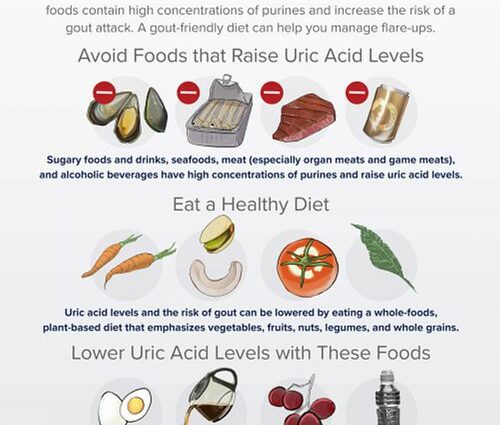Prevention of gout
Measures to reduce the risk of recurrence and complications |
FoodIn the past, watching your diet was the main treatment for gout. Nowadays, because some medications lower the level of uric acid in the blood, doctors no longer necessarily restrict their patients to a strict diet. However, foods rich in purines raise uric acid levels in the blood, and some should be avoided during a gout attack (see Medical treatments section). Here is the advice offered by the Professional Order of Dietitians of Quebec in matters of nutrition.6, which it is good to follow between crises or in case of chronic gout.
What about the coffee? Coffee is not to be avoided in case of gout, because it contains negligible amounts of purines. According to epidemiological studies3,7, it seems that the regular consumption of coffee would exert even a slight protective effect against this disease. However, this should not be seen as an incentive to drink more. To find out more, see our Coffee fact sheet. A diet rich in vitamin C: beneficial? The link between dietary vitamin C intake and blood uric acid levels was investigated in a group of 1 men in the Health Professional Follow-up Study8. The higher the vitamin C intake, the lower the uric acid level. However, this finding will need to be verified by other studies. Warning. The ketogenic diets are not recommended for people with gout. This type of diet is particularly low in carbohydrates and high in fat. Ketogenic diets reduce the excretion of uric acid by the kidneys. This is the case with the Atkins diet, for example. pharmaceuticalsRespect the dosage prescribed by the doctor. Some medicines make it less likely that other seizures will occur (see Medical treatments section). See your doctor as needed in the event of undesirable effects or treatment ineffectiveness.
|










